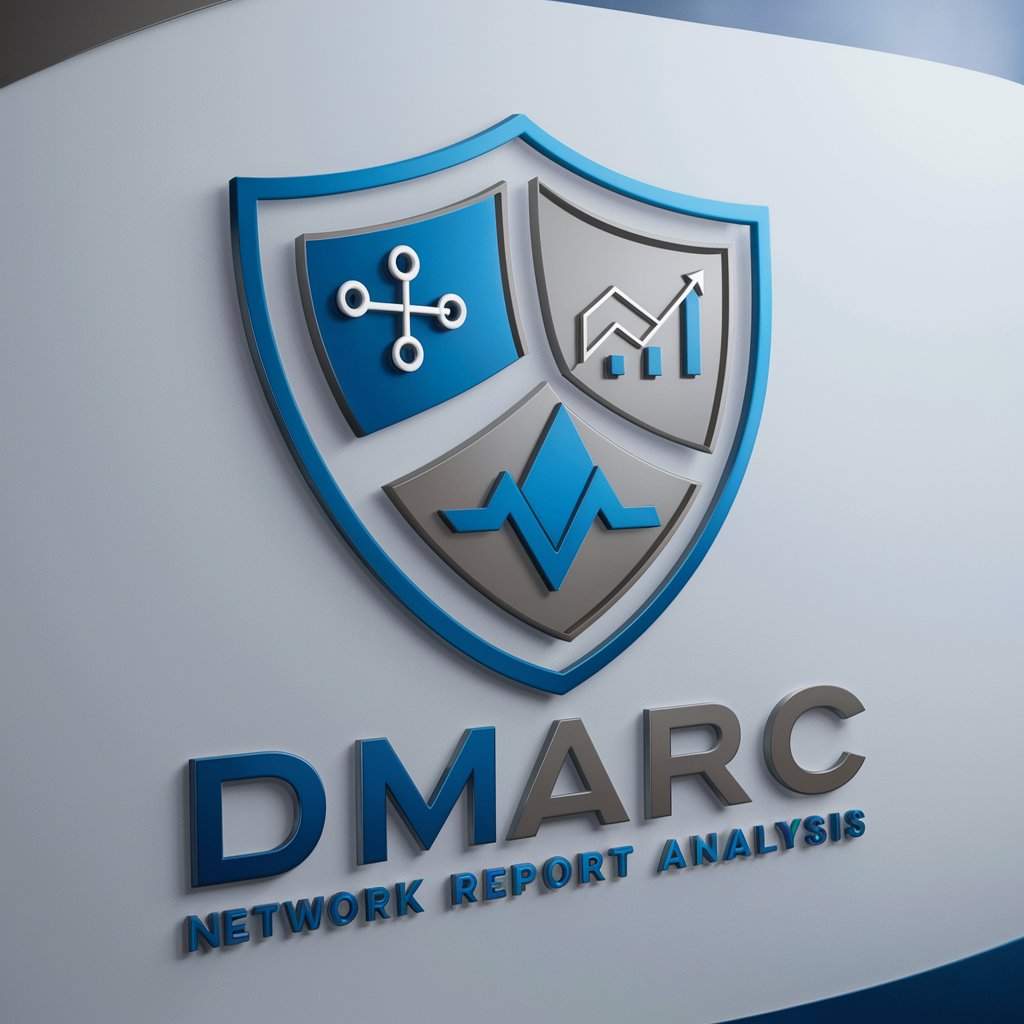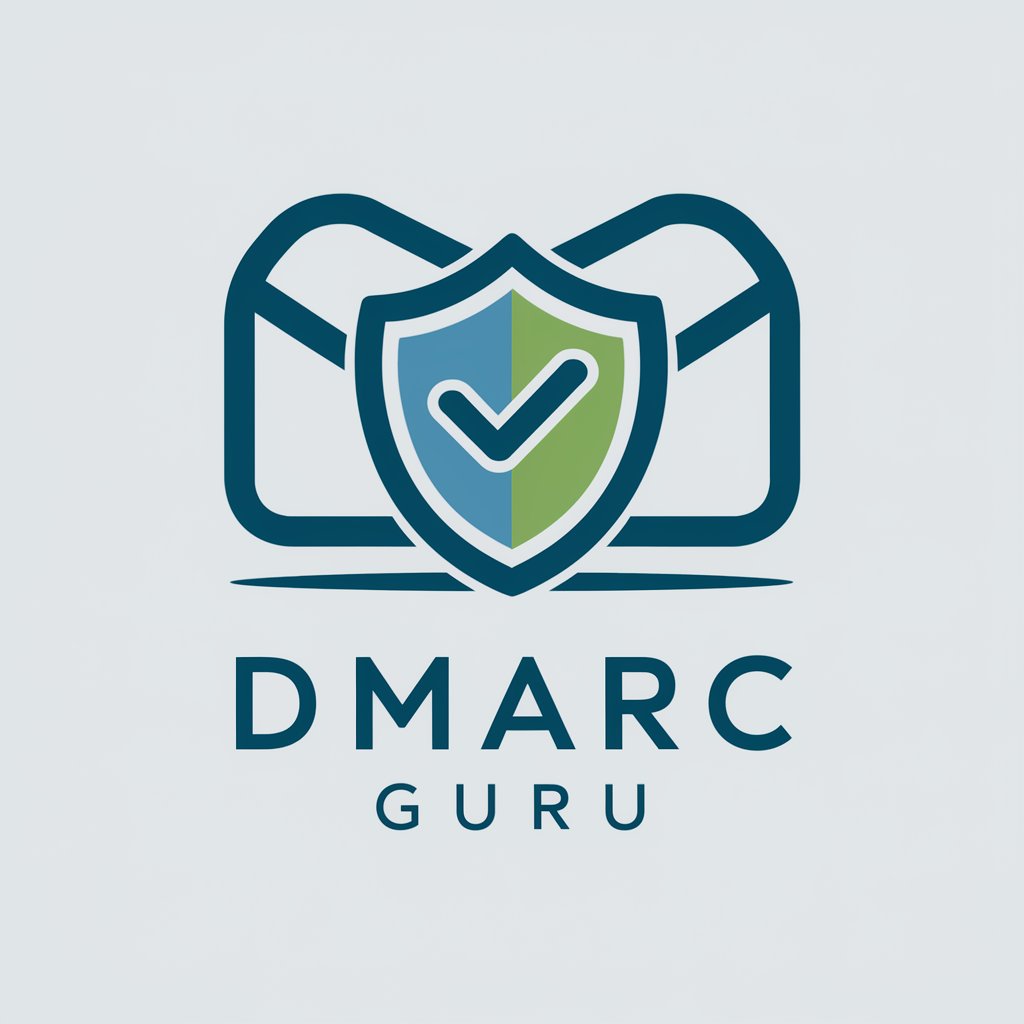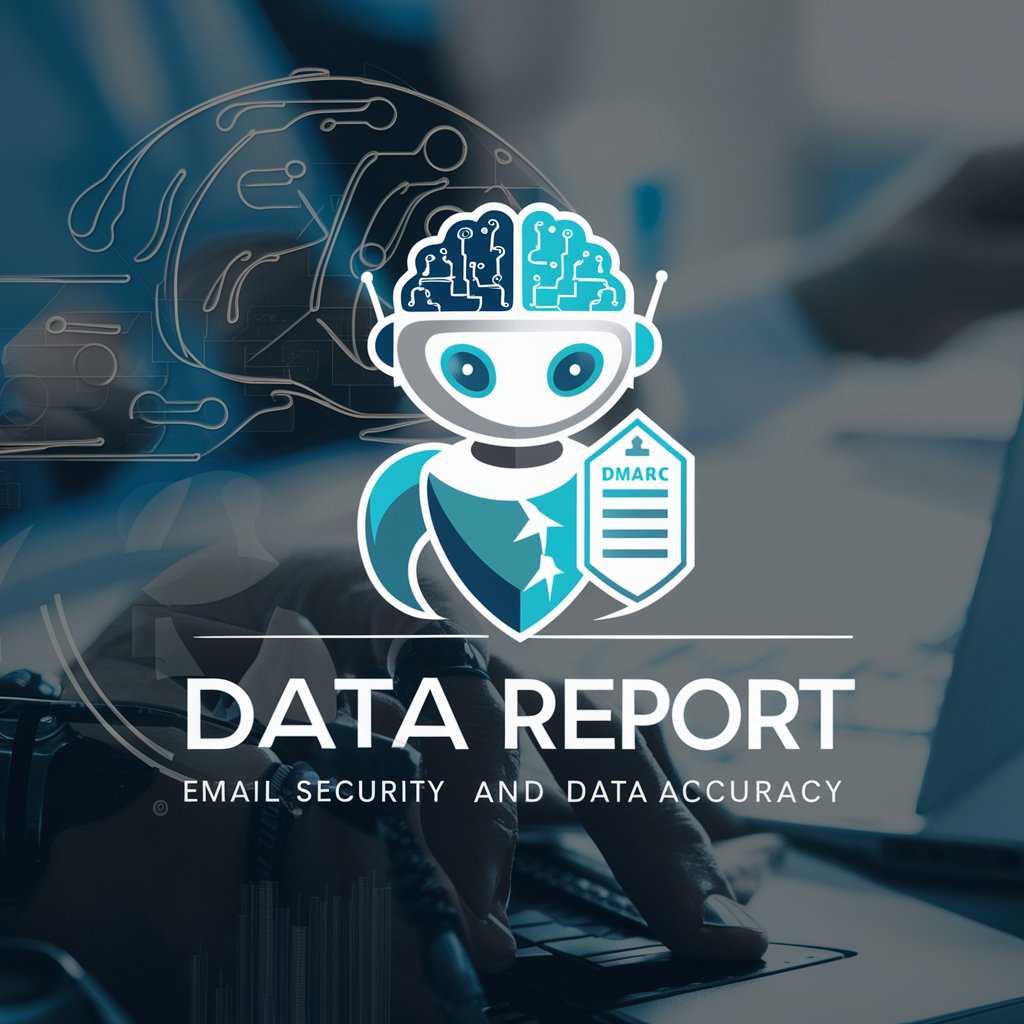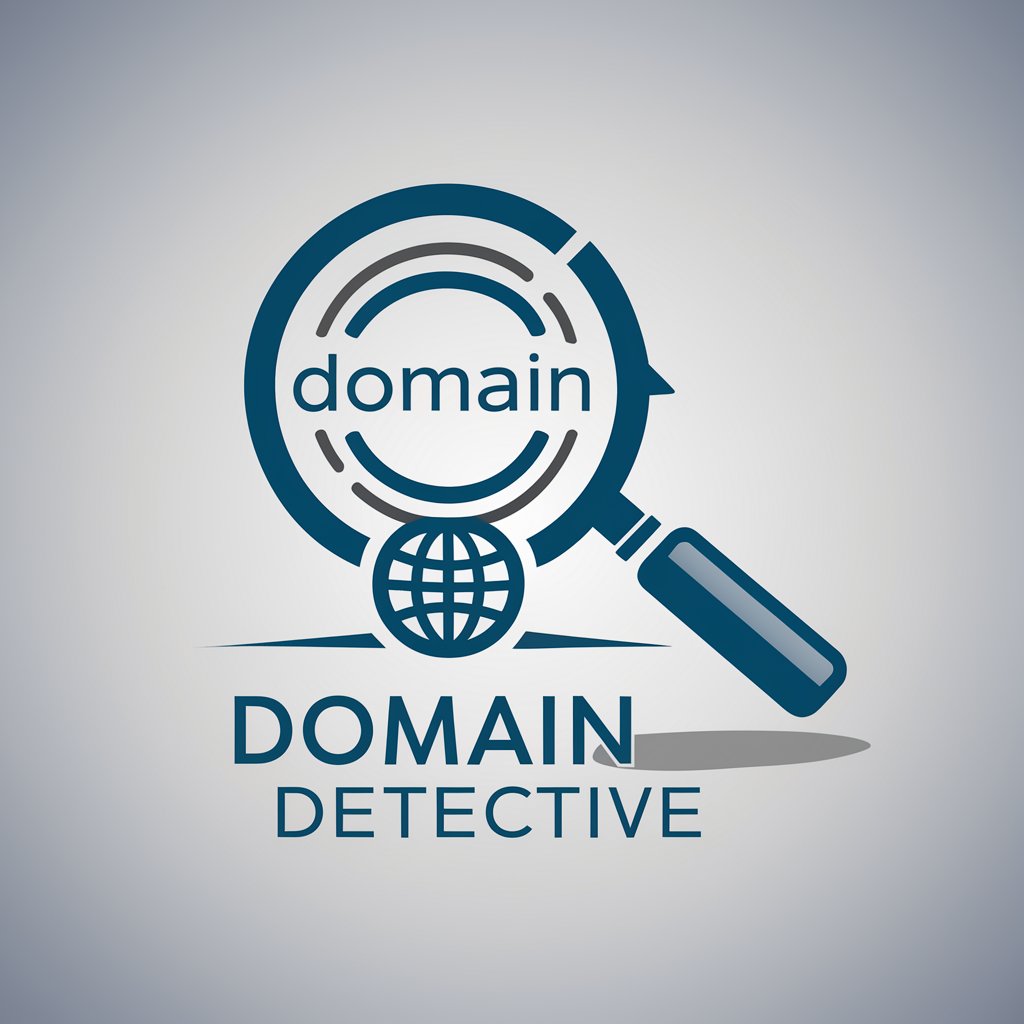
DMARCレポート分析(old) - DMARC Report Analysis Tool

Hello, I'm here to help you analyze your DMARC reports with precision.
Enhance email security with AI-driven DMARC analysis
Analyze this DMARC report and provide detailed insights.
What are the common issues found in DMARC reports?
How do SPF and DKIM work together in DMARC?
Can you explain the steps to achieve a DMARC pass result?
Get Embed Code
Overview of DMARC Report Analysis
DMARC Report Analysis is designed to enhance email security by scrutinizing DMARC reports generated by various organizations. These reports provide insights into email authentication practices, highlighting issues related to SPF, DKIM, and DMARC implementations. By analyzing these reports, stakeholders can identify unauthorized email sending activities and improve their email authentication policies to prevent phishing attacks and enhance domain reputation. An example scenario is a company that receives daily DMARC reports and uses the analysis to detect anomalies in email sources or failures in email authentication, allowing them to quickly address vulnerabilities. Powered by ChatGPT-4o。

Core Functions of DMARC Report Analysis
Aggregation and Visualization
Example
Compiling data from multiple DMARC reports into a single, unified dashboard.
Scenario
A security team uses the dashboard to monitor authentication results across all outbound emails, identifying trends or sudden changes in email delivery statistics.
Detailed Authentication Analysis
Example
Assessing individual email senders for compliance with DMARC policy settings.
Scenario
An IT administrator filters the report data to focus on emails failing DMARC checks, determining if these failures are due to misconfiguration or malicious activity.
Alerting and Reporting
Example
Automatically generating alerts when specific anomalies or non-compliance issues are detected.
Scenario
An email governance team receives immediate alerts when an unauthorized source attempts to send emails that appear to come from the organization, enabling rapid response to potential email spoofing.
Target Users of DMARC Report Analysis
IT Security Teams
These professionals are responsible for safeguarding organizational email practices. DMARC Report Analysis aids them by providing tools to monitor, analyze, and secure email domains against fraudulent activities.
Email Administrators
Email administrators benefit from DMARC Report Analysis as it helps streamline the management of email authentication and compliance, ensuring that all outgoing emails are verified and secured according to established email security standards.
Compliance Officers
Compliance officers use DMARC Report Analysis to ensure that their organizations adhere to various regulatory requirements concerning data protection and privacy laws related to email communications.

Using DMARC Report Analysis (Old)
1
Visit yeschat.ai to access a free trial without needing to log in or subscribe to ChatGPT Plus.
2
Choose 'DMARC Report Analysis' from the available tools on the platform to start analyzing your DMARC reports.
3
Upload your DMARC XML report file or input the DMARC data manually into the designated field.
4
Use the analytical features provided to view and interpret the alignment of SPF and DKIM records, and verify DMARC compliance.
5
Apply the insights from the analysis to optimize your email authentication practices and improve email deliverability.
Try other advanced and practical GPTs
实习报告助手
Streamline Your Internship Journey with AI

热点新闻(Breaking News)
Stay informed with AI-powered news updates

关键点扩写
AI-Powered Writing, Simplified

Курсовая работа
AI-powered academic support for students.

Русский Редактор
AI-powered Russian Grammar Editor

Портрет ЦА в 1 клик
AI-Driven Customer Insight at Your Fingertips

Web Pilot
AI-powered content analysis and writing

学术专家
Empowering Innovation with AI-driven Insights

Copywriter
Empower your words with AI

Storyline Weaver
Craft Your Story, Powered by AI

Storyline Helper
Empowering Instruction with AI

Python engineer - To the point
Direct Python code solutions, AI-powered.

FAQs on DMARC Report Analysis (Old)
What is DMARC report analysis?
DMARC report analysis involves reviewing and interpreting DMARC reports to check the alignment of email authentication protocols like SPF and DKIM, ensuring that emails are authenticated properly under the domain's DMARC policy.
How can DMARC report analysis benefit my organization?
It helps in identifying and mitigating issues like email spoofing and phishing, thereby enhancing email security and sender reputation.
What kind of data is needed to perform DMARC report analysis?
You will need access to DMARC XML reports, which include information about messages sent from your domain, including SPF, DKIM, and whether they passed the DMARC policy checks.
Can DMARC report analysis prevent email spoofing?
Yes, by regularly analyzing DMARC reports and adjusting your email authentication practices, you can significantly reduce the risk of email spoofing.
Are there any prerequisites for using DMARC report analysis tools?
Yes, you need to have DMARC, SPF, and DKIM set up for your domain to generate the necessary reports for analysis.





